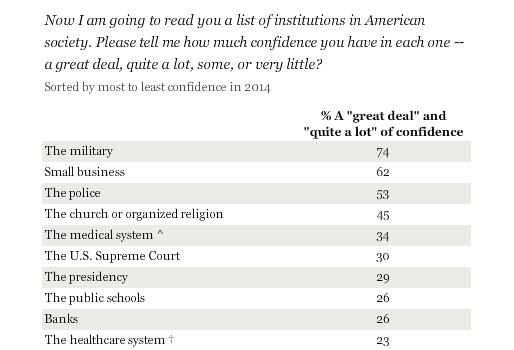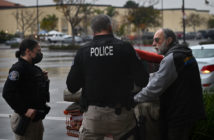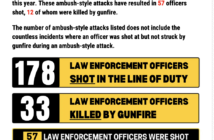You might have read about the surprising findings of a recent USC-Los Angeles Times poll: Turns out 82 percent of the public acknowledged that police have a tough job – and, for the most part, do it well. This was true even among minority respondents; 72 percent gave police a favorable rating.
Click here to see USC Dornslife/LA Times Study
Now compare the findings to Rob Hustle’s facetiously titled “Call the Cops” rap video. What you see over and over again are very intense and disturbing clips. I guarantee you will be moved by what you see.
Click here to watch This is What Happens When You Call the Cops
Mind you, the video clips have been gathered over decades and condensed into a three-minute video. Now add to that the saturation in today’s media of alleged police misconduct.
What you might feel is that American policing has gotten out of control – that somehow we have allowed our police officers to operate with impunity and violently against a voiceless and victimized public.
But wait. Didn’t the poll find the public generally feels the police are doing a good job? USC and the Los Angeles Times aren’t the only folks whose research shows public sentiment remains supportive of law enforcement.
The latest 2014 Gallup survey shows the public believes in the honesty and integrity of law enforcement. Police officers ranked higher than clergy, and much higher than journalists. At the bottom of the list: politicians and members of the U.S. Congress. Politicians ranked even lower than used-car salesmen.
Click here to see Gallup Survey on Honesty and Integrity in Professions
But what about the people who feel the police cannot be trusted? Were they the victim of a police frame up or unfairly targeted? Were they actually prosecuted and arrested for committing a crime? Did the media influence their opinion? Did they call the police over a domestic disturbance and somehow feel wronged? Did they get a traffic citation they didn’t deserve?
Well, we just don’t know, but the USC-Times survey offered a glimpse about how the media coverage and videos like “Call the Cops” influence public opinion.
While a good number of respondents reported that police are tougher on minorities, very few respondents actually reported a negative encounter with an officer during the past year, the report said.
A previous National Institute of Justice study found the strongest influencer in determining your feelings about the police are the personal contacts you have had with a police officer. Second would be the personal contacts your friends, family and coworkers have had with the police.
Seems if you believe you have been wronged the first thing you do is share these feeling with everyone around you. I suspect every incident portrayed in the “Call the Cops” video was investigated and some finding was determined regarding the uses of force.
The incidents were almost certainly reviewed by investigators, criminal prosecutors and in some cases police review boards. The cases were likely then subjected to civil review and a finding was determined.
In the case where officers and agencies were found to be negligent, I’m confident money was paid out. In some cases, I suspect it was a lot of money. Law enforcement is a profession with significant accountability.
That doesn’t mean there isn’t room for improvement. This is especially true in the area of ethnic and racial perceptions of the police. All the data continues to show significant differences in perception of police along racial and ethnic lines.
So if you do support the police you are not alone. You are among the majority of Californians and Americans who obey the law, stay out of trouble and when you need them and believe the police are there to help.
When you take into account the overwhelming amount of negative imagery about policing out there you have to take the time to compare that against your personal experience. That is the difference between thinking and knowing.
Joe is a retired Anaheim Police Department captain and its first public-information officer. He can be reached at jvargas@behindthebadgeoc.com
 Behind the Badge
Behind the Badge




